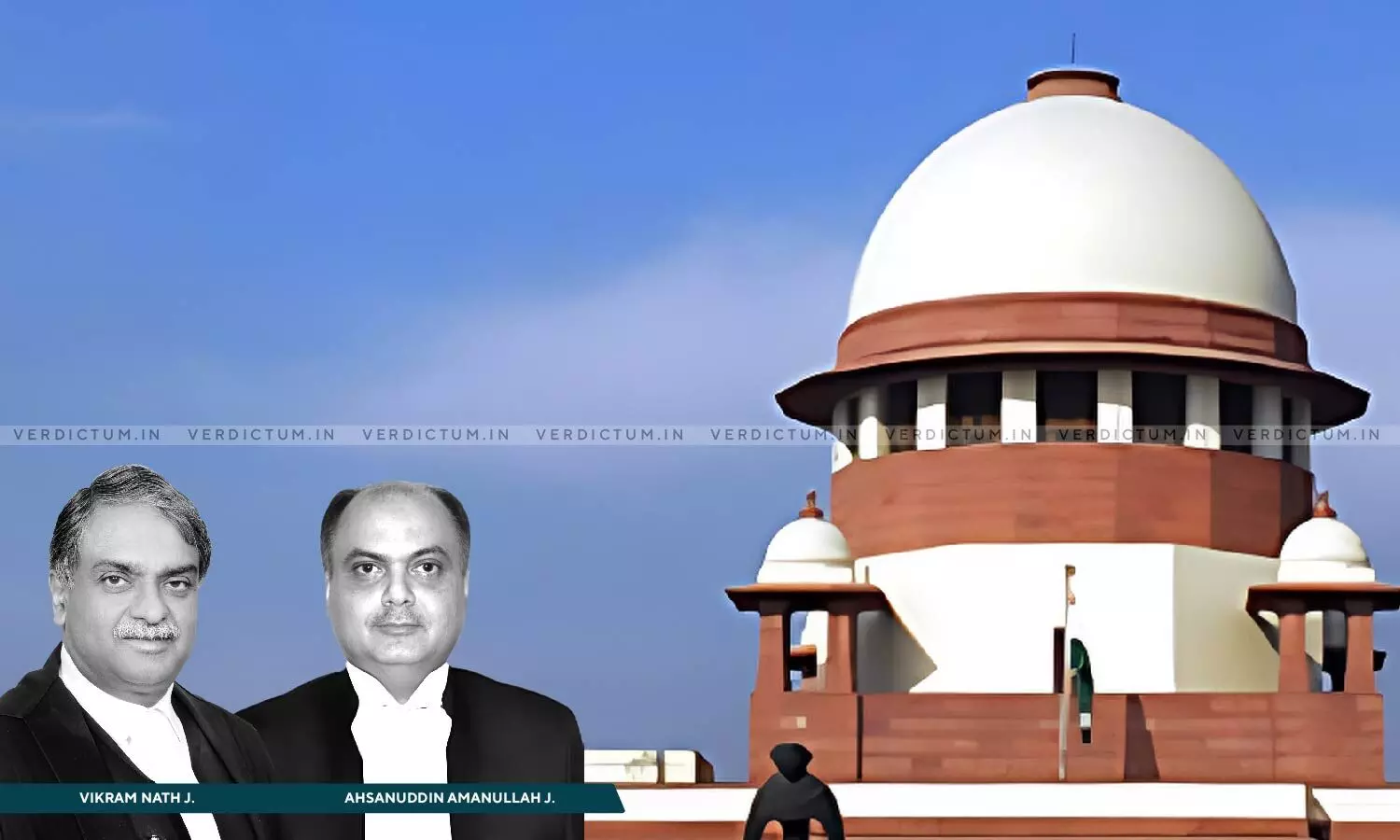
Municipal Corporation’s Power To Charge Royalty Can’t Be Interfered On Ground That It’s Not Available In Statute Or Regulations: SC
 |
|The Supreme Court observed that the power of the Municipal Corporation to charge royalty cannot be interfered with on the ground that the same is not available either in the Act or in the Regulations concerned.
The Court observed thus in a batch of two civil appeals preferred by the Patna Municipal Corporation against the judgment of the Patna High Court by which the Single Bench’s decision was set aside.
The two-Judge Bench of Justice Vikram Nath and Justice Ahsanuddin Amanullah elucidated, “The advertising companies concerned had agreed to pay Re.1 per square foot royalty per year on such hoarding. The same was merely revised on 02.11.2007 i.e., after a period of over 2 years. … We have no hesitation to hold that such revision of rate was within the power of the Corporation. However, at this very stage, we are also equally unhesitant to hold that the Resolution to charge enhanced royalty in exercise of purported power under Section 431 of the Act was misplaced as royalty is not tax. It has been authoritatively clarified by this Court that royalty and tax are not one and same. As such, the Corporation’s power to charge royalty cannot be interfered with on the ground that the same is not available, either in the Act or in the Regulations concerned, as there is no question of the said ‘royalty’ being a tax.”
The Bench added that Section 431 of the Bihar Municipal Act, 2007 would not come into the picture where royalty, that too by way of and under an agreement/understanding is concerned.
AOR Kaushik Poddar represented the appellants while Senior Advocates Sanjay Singh and Manish Singhvi represented the respondents.
Facts of the Case -
In 2005, a meeting was called by the Municipal Commissioner-cum-Chief Executive Officer attended by representatives of the advertising agencies wherein it was resolved that if any agency puts up its advertisement(s), it will have to submit a list of the ad, place, location, size, etc. to the Authorised Officer of the Corporation and that the Corporation would charge a royalty at the rate of Rs. 1/- per square foot per year on such hoardings, which would be displayed on the land under the jurisdiction of the Corporation. The appellants came out with fresh rates of royalty/tax on ads whereby different rates of royalty for different kinds of hoardings and ads were prescribed, the same being Rs. 10/- per square foot per year in the case of the respondent. In the interregnum, the Patna Municipal Corporation Act, 1951 was repealed and replaced by the Bihar Municipal Act, 2007 and thus, the Corporation started operating under the new Act. By an Office Order, various rates of royalty/penalty under the provisions of the said Act were prescribed.
The Municipal Commissioner of the Corporation recommended that all those advertisers who had not paid their dues, would be liable to be charged twice the rate fixed and further that hoardings displayed without permission should be removed and such persons would be charged a penalty five times the amount due from them. In 2012, a demand was raised towards royalty/fee/tax on the respondent to the tune of Rs. 64,50,040/- and this demand was assailed by filing a writ petition before the High Court. The Single Judge quashed the order of demand but the Division Bench quashed the enhancement itself, and held that the Corporation had no power to charge royalty/fee/tax under the Act, since it was necessary to frame Regulations. Therefore, the appellants approached the Apex Court.
The Supreme Court in view of the facts and circumstances of the case, remarked, “As stated previously, royalty and tax cannot be equated – the nomenclatures cannot be used interchangeably in law, both carrying starkly different imports and connotations. For reasons above, we are unable to maintain as tenable the argument that the demand made by the Corporation was a compulsory exaction. Equally, we are unable to state that the demand was/bore the hallmarks of a tax.”
The Court said that the advertising companies did not object to payment of royalty, as sought by the Corporation and hence, a challenge could, later be mounted on limited grounds to the quantum/rate of royalty, and not on the decision to charge royalty itself.
“Even otherwise, as we do not find that the ‘royalty’ was a tax/levy, the action of the Corporation cannot be struck down merely on the ground of having quoted Section 431 of the Act (wrongly), for, quoting the wrong provision of law, when the power to do an act otherwise exists, would not invalidate or render illegal the act in question”, it added.
The Court held that the decision of the Corporation, to charge Rs.10 per square foot with regard to hoarding(s)/advertisement(s) as communicated at the relevant point of time to the concerned parties needs no interference.
“However, the imposition of penalty for non-payment needs to be interfered with as no such power exists. It is held thus, but with the clarificatory caveat that the Corporation would not be precluded from charging interest over delayed payment(s). Obviously, interest on delayed payment(s) would not be a ‘penalty’ but rather, in the realm of ‘compensation’ for late/delayed payment of amounts which were payable on/from an earlier date”, it further clarified.
Accordingly, the Apex Court disposed of the appeals and directed the Corporation to furnish computation of amounts due to the parties within four weeks.
Cause Title- The Patna Municipal Corporation & Ors. v. M/s Tribro Ad Bureau & Ors. (Neutral Citation: 2024 INSC 784)
Appearance:
Appellants: AOR Kaushik Poddar
Respondents: Senior Advocates Sanjay Singh, Manish Singhvi, AORs D. K. Devesh, Manish Kumar, Advocates Sarvshree, Somyashree, Rudrank Shivam Singh, and Divyansh Mishra.